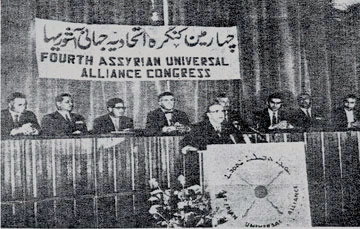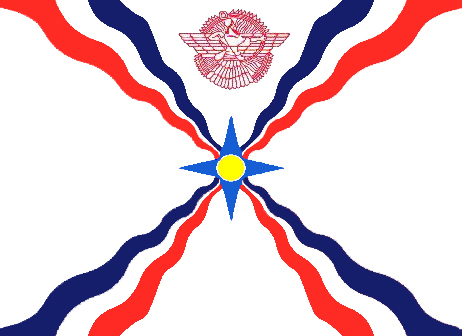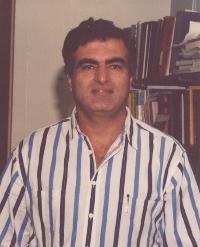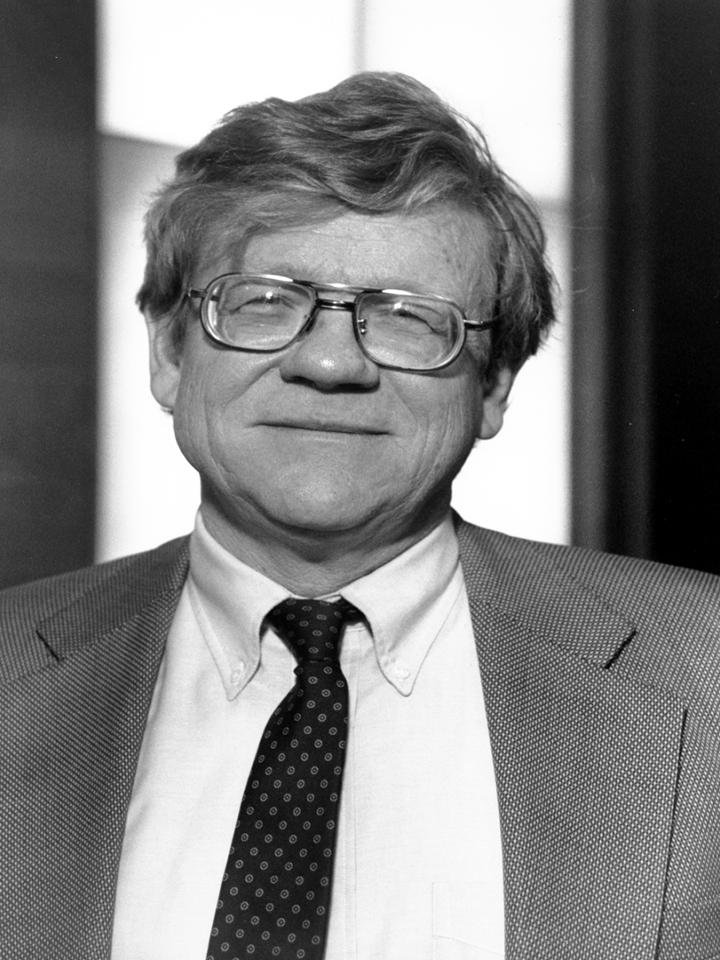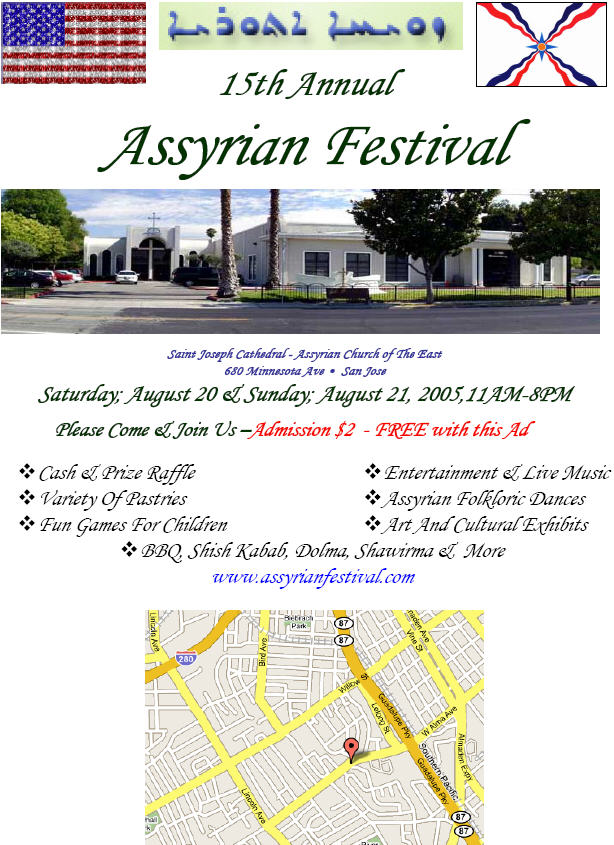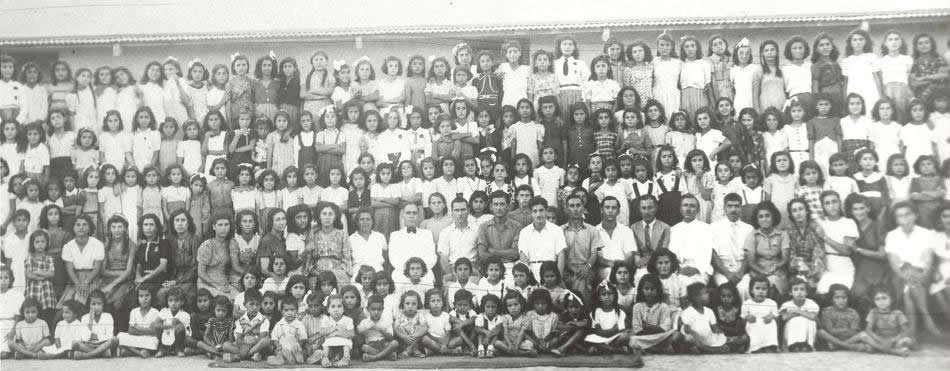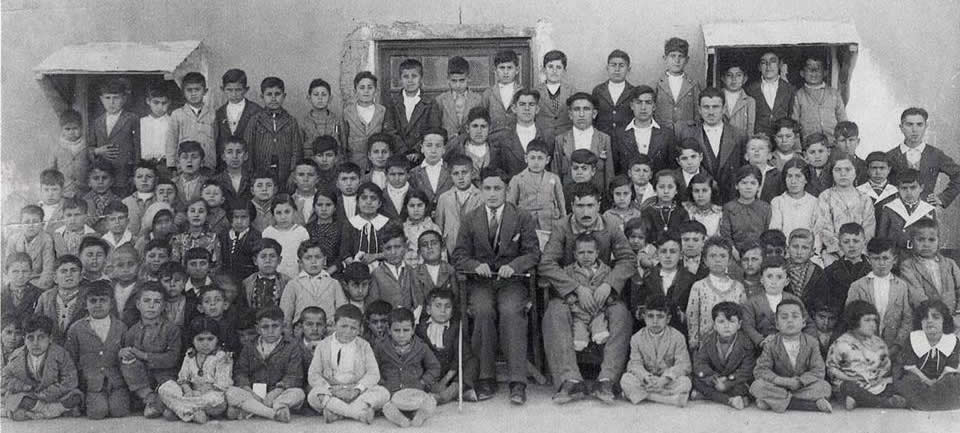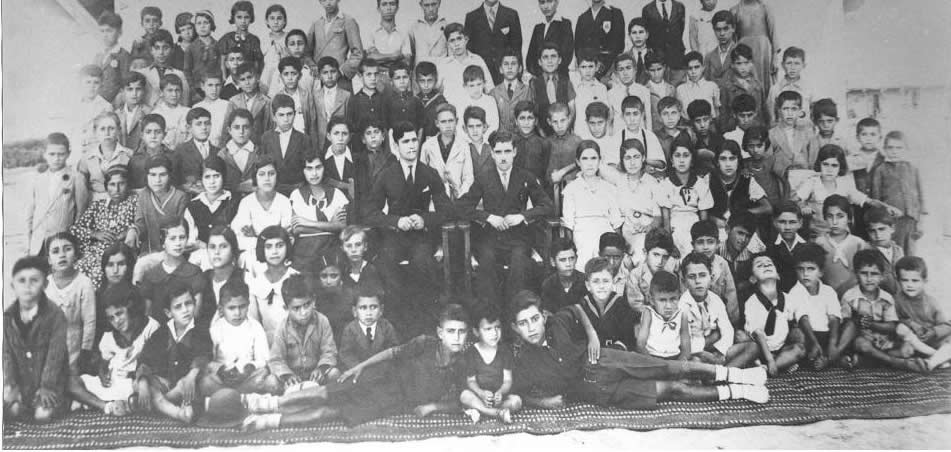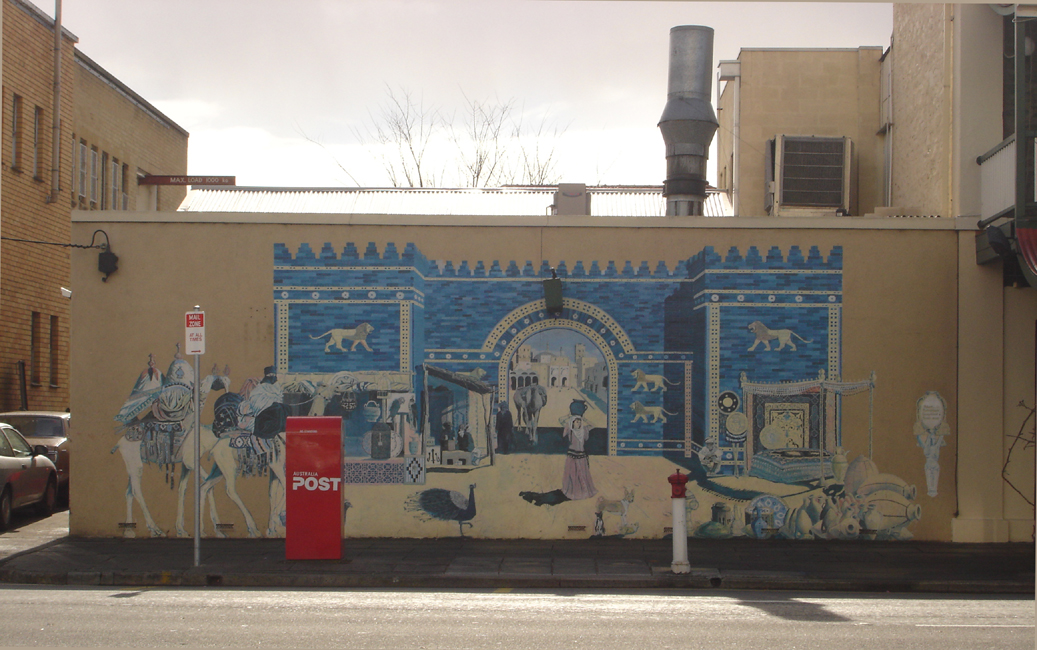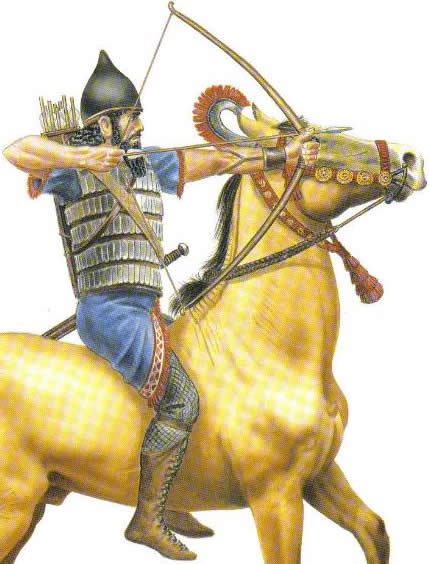A Constitution for the Assyrian Nation
Dr. Ashur Moradkhan
California
1. Introduction
Every genuine question requires a genuine reply. The foregoing question is definitely sincere. For this reason it necessitates a genuine answer. This question does not concern one or a few people. It is intertwined with the spirit, and is tinted with the blood of the entire Assyrian people. It is not a new question; it has been awaiting a response for dec&’des and even centuries. For this reason, it is important to analyze it profoundly and examine it thoroughly.
Questions do arise when there is ambiguity and lack of clarity. The Assyrian people have no part in decision-making and do not know what is the national agenda nor where they stand. The Assyrian individual has no idea which way our nation is going and what steps are being taken. He does not know whether our nation is progressing towards a bright future, or is at a standstill. This is why the aforementioned question arises. Moreover, questions arise as a result of knowing, seeing, and hearing, the Assyrian hears, witnesses, and knows what the Palestinians doing and gaining; what the Kurds are doing and where they stand; what South Africans attempted and achieved; how the Armenians act and where they stand; how the Jewish people advance and spread out. The Assyrian is aware of the national movements among the Georgians, the Ouzbeks, the Turkemans, and other nations who did not wait passively. They were creative and became victorious. All that which is witnessed, heard, and known raises questions about our nation: What is it doing, and where does it stand?
2. Commentary
From whom is this question asked? Truthfully, it is addressed to our national leadership. Who are they and where are they? Here it is necessary to remark, in order to awaken, raise the consciousness, or perhaps shake the reader, that only a worthy nation has a worthy leadership. But this is possible if the nation is centralized and can exercise its free will. To have thorough knowledge of who its devoted, active, and loyal members are. To have full rights of constitutional elections. But under the present circumstances, this is not an option for the Assyrians. Therefore, the above statement must be transformed into: “The worth of a nation is in the worthiness of its leadership.”
If a nation is victorious, progressive and prosperous, it is because of the capability of its leadership. But if a nation is in distress, hardship, homeless; if it is dispossessed and forlorn, all this affliction is the result of an incompetent leadership. What is obvious today, is that our nation suffers from harsh persecutions and destitution. This is our condition and our lot today. Where is the pillar against which our nation may lean and get encouragement? Where can the Assyrians look to get a glimpse of hope for the future? There are no answers for these questions nor for the main question: Where does our nation stand and which direction is it going? Every Assyrian must individually and singularly seek an answer and find what is essential in our life. What is the reason for our apathy and inaction?
If someone asks me these questions what will my answer be? To provide answers I need to make the following observations:
Recurrent events or conditions are habit forming. If they continue for a long time, they become a part of our existence, and a second nature to us. On the basis of this observation, it is relevant to ask what has happened to the Assyrian national character ever since the Assyrians lost their statehood and began life as a Diaspora?
Continuously different parts of our nation have lived under subjugation. Others have provided them with shelter, clothing and means of survival. This situation has been recurrent for 2,000 years and is our lot today. It has become second nature to us that whenever a section of us is uprooted, we react by focusing on feeding, clothing, or finding a shelter to our refugees. This reality and our reaction to it was clearly and dramatically demonstrated during the first Gulf War when all the Assyrians participated in various meetings and generously donated to the cause of feeding and clothing the hungry and dispossessed Assyrian war refugees. Up to this day we are still busy fulfilling the imperatives of a habitual nature ingrained by recurrent conditions.
As you see, the imperatives of national conditioning have led us to satisfy our conscience with charitable activities which confine us and prevent us from taking further steps towards essential goals.
Let us beware that the more an Assyrian makes offerings to the altar of charity, the less he has to offer in the way of will and determination to alter the existing conditions and bring about an escape from this vicious circle. Under customary practice, we have learned to react to oppression with welfare; when in fact the reaction to oppression can be protest and resistance. When we are pushed to the corner, we begin to think of how to survive in that corner instead of trying not to be cornered or not to stay cornered. It is not in our nature, it is not in our experience, it is not seen within the 2600 years of our history to react to oppression with force and determination. We do not have an alternative vision or an alternative plan of action. The few instances such as Assyrian sovereignty in Urhai or Adiabene, and a few others, are because of leaders who saw the two alternatives to defeat.
We are finding out that our second nature does not permit us to acquire self-confidence in our collective worth and capabilities. We have lost all hope to achieve sovereignty. Our handicap has become further entrenched by our Christian faith and beliefs. Within this body of belief, there are no limits and no ends. All is one and one is all. There is no difference between black and white or red and yellow. We are passive and silent. Whenever we have been slapped on one cheek, we have turned the other. But when we have had faith in ourselves, and have kept our spirit strong, we have accomplished powerful deeds. Our Christian history itself demonstrates the eternal glory our nation has earned in the spread of the Christian faith. In the cause of our faith, we willed and we accomplished much. We were not afraid of sacrifices and we were successful. We earned this glorious history with our spiritual strength and with self confidence. Alas we have not been so strong willed, so confident, and so sacrificing in the cause of nationalism.
Adopted habits are maladies that control the spirit, the will, and decisions. They drain our self-confidence and exhaust our will to stand up and resist. Whenever we are pushed to a corner, we do not have an appropriate reaction.
Under the imperative of an acquired nature, we have wiped out all that is essential for our national existence. We have cut off the tie that binds us and maintains our identity. We have stopped relying on our spiritual strength and have lost faith in our collective worth and capabilities. That which transforms a fox into a lion and leads the crippled to the summit--that is called ideology. Without it, there is no motivation, strength of mind, and faith in our collective capabilities and worth. Whoever is equipped with ideology is capable of resisting, taking action, and succeeding.
3. Ideology
Ideology has been a very powerful and consequential element in the destiny of
nations. To illustrate, let us examine three cases that we have witnessed with our own eyes.
a. Consider the half-starved, ill-equipped Vietnamese--lacking in wealth and professional expertise--he fearlessly stands up to the American power: supreme in the most modern warfare. He defeats and chases out the American from his country proving that without ideology one cannot be victorious in any baffle. The world and the history of humanity is a witness that the victory of the Vietnamese was due to the presence of ideology and the defeat of the Americans was due to lack of it.
b. The sandal-footed Afghani with a mantle on his shoulder, with no military power or training, defeats the much larger and powerful Russian force, which was famous in the battle of Stalingrad. He not only defeated and forced the retreat of the Russian army, but also caused havoc in the Russian government. The Afghani had strong ideology, while the Russian did not possess a fundamental one.
c. The Palestinian who confronts Israeli fire power with stones gathered in the streets, does not get cornered, and is able to persist and achieve his goal. His spirit is nourished, directed and driven by the power of ideology. He does not retreat despite innumerable sacrifices and the incarceration of war prisoners until he wins victory and respect.
Historical instances such as these are numerous. They clearly demonstrate that by means of ideology the fox turns into a lion, and the lame ascends to the top of the mountain. In order to change our debilitating national habits, to strengthen our spirit, and to gain self-confidence in our collective worth, we need an ideology.
4. The Assyrian Ideology
I asked Malik Loco in Lebanon: “In how many wars have you been?” He said: “I’ve been in all kinds of battles ever since I was 16. I have fought against the Kurd, the Arab, and the Turk.” I asked: “What were you fighting for?”. He answered: “We were fighting for self-defense or in retaliation, or to carry out British orders.” I asked: “Have you ever fought to gain independence and freedom from oppression?” He said: “Neither I, nor my superiors ever entertained such thoughts or goals. We have never fought for this purpose.” As you see, we have not had an ideology to guide us in the assessment of historical conditions in critical times.
I know of no nation whose ideology is exposed or written in a few statements. But on the basis of my analysis of the history, and the legacy of my people, I propose and present the Assyrian ideology by this statement:
THE ASSYRIAN WILL CREATE HIS OWN HISTORICAL CONDITIONS AND EVENTS; HE WILL NOT DEPEND ON CONDITIONS CREATED BY OTHERS.
There is profound wisdom and discernment in this ideology. It transforms the passive nature. It says: “Be a creator and not a follower. Rely on yourself and on your collective entity. Step forward and gain confidence in your national capability and worth. Revive your spirit and be strong. Do not be the consumer of leftovers.” The lion captures the pray; the fox waits for the lion’s leftovers.
Presently we boast three political activities:
1. We are pleased and congratulate ourselves for having gained a seat in UNPO (the Unrepresented Nations and People Organization). Others have created this and we have received the crumbs. We are in the disposition of the will of others. We are in waiting to see when they will take a step that can benefit us. Evidently, the founder is motivated by self-interest, but seeks advantage of our name and our identity. Relying on neighbor’s charity, “he” will leave you in misery and hunger. it is wrong to rely on others.
2. We are pleased and congratulate ourselves for gaining membership in the opposition group in Iraq. Others have created the opposition and are in charge of its manipulation. They will benefit from this and will benefit from our name and identity. We are expecting to see what steps they will take. Our voice does not carry weight.
3. We are pleased and boastful that we have sent delegates to the Kurdish parliament. They have created that parliament for themselves and we are an appendix.
However, even these political moves are better than none. But as ideological tenets, they are neither sufficient nor constructive. They bind us to others, keep us in waiting, and make us dependent on the foreign will. They lead us astray from our own path and we lose the will to create our own destiny. This attitude, if pursued, may dim an otherwise bright future.
The Palestinian did not wait for leftovers. Neither did he wait for foreign strategies. He, by hijacking planes, and by taking hostages, created his own strategies. Even though he became labeled as terrorist and a thief, he entered the White House and took his rights. On the strength of his ideology, he stood up to the Israeli force, oblivious to the extent of his casualties and sacrifices. He did not appease his conscience by clothing and feeding the naked and the hungry. He used the plight of the destitute to mobilize and publicize his revolution.
The Jew used his exile as a resource to publicize his plight worldwide.
There are many appropriate channels for us as well, to make our voice heard and our national rights recognized.
The Assyrians have given big sacrifices to promote and fulfill the ideology of others. More than 40000 Assyrian young men lost their life in the Iran-Iraq war. During WWII, 67 out of 96 young men were killed in a single Assyrian village in Russia. Thousands more were killed in Russia as a whole. There were numerous Assyrian casualties from the US army during the Korean war. For the cause of the Kurdish independence, not only have we given many casualties, but we have also suffered other great losses. In return for all this loss and suffering what has been our reward? With a smaller number of Assyrian casualties, for a genuine Assyrian ideology, our identity would have been publicized effectively and our voice would have carried more weight. We would have experienced a revived spirit and self-confidence in our collective strength and capability.
It is a great mistake to wait in the anticipation of charity from others. To depend on others is against the ideological tenets of the Assyrian people. To lean or depend on others means straying away from the ideological path and losing faith in the collective capability and worth of our nation. We have heard powerful nations, claiming: “If Christian minorities in the Middle East are suffering from oppression, let them emmigrate to Christian countries in Europe and America!”
All these thoughts and projections can be redirected to the benefit of the Assyrian people only if they are informed and enlightened by an Assyrian ideology. If equipped with an Assyrian ideology, our small nation can accomplish earthshaking deeds. The Assyrian ideology directs us to rely on ourselves under all circumstances. Do not wait. Be resolute. Take action. Depend on yourself Depending on the leftovers of others is a waste of time and energy. If you believe in yourself, you will be great. Let me remind you that once the head of a powerful country told a few of our leaders: “If you ask my advice, I will tell you do what the Kurd is doing.”
5. Ideological Direction
An ideology is like an avalanche. It descends from the mountain top and spreads
over the plain, and creates large torrential streams that roar along the way until they reach the sea of tranquility and restfulness. Any stream that changes course loses its existence and becomes dissipated in the desert and in the marshes. But the one that stays on course, according to plan, reaches the sea and partakes of its power which is capable of causing shipwrecks and displace age-old cliffs. Anyone who reaches planned goals has this kind of power. That is why every ideology needs a direction which is unchangeable irrespective of changes in time and conditions. It must not come under the power of a will which is not of its own. It must stay on course and follow its own direction. Under all circumstances it must preserve its integrity and authenticity. The motto that I have chosen for the Assyrian nation is:
THE ASSYRIAN PEOPLE IDENTIFY THEMSELVES AS A NATION AND DESIRE TO LIVE IN FREEDOM LIKE ALL OTHER NATIONS.
As we see, the above-mentioned directive is subject to the Assyrian will and is compatible with any and all political inclinations. No philosophy or logic can find fault with it. Circumstances cannot bring change in its course. It is solid and permanent as long as the Assyrians maintain their identity. This course must end in the aforementioned sea. What is the sea in which the Assyrian ideology finds peace and tranquility? That is the Assyrian national quest.
6. The National Quest (Goal)
An ideology is alive as long as it is directed towards a well-defined and clear purpose. It is essential that the goal be the focus point, and the ultimate end of the ideological path: the most sacred goal of the Assyrian people. The goal must fulfill and satisfy the basic need upon which the survival of our nation depends. It must be like the tranquil sea which, at the same time, is stable and strong. I submit that the ultimate goal or the focus point of the Assyrian ideology is:
GAINING TERRITORIAL AND POLITICAL IDENTITY
I. Territorial Identity
Throughout the Ottoman rule in Bet Nahrain, this region together with its surrounding mountains and valley, was identified in the geographical maps of that time by the name “Assyria”. The mountains of Assyria, the rivers of Assyria, the plains of Assyria, etc., are all examples of such denotations. But today all that region is renamed “Kurdistan”. This is an identity taken from us and given to the Kurds.
In a meeting of AUA delegates with the leadership of the Assyrian Democratic Movement (Zowaa), I asked a member of the Zowaa delegation: “Where are you from?” His answer was: “From Northern Iraq or Kurdistan.” I suggested that it would be more appropriate to say that he is from Assyria. From now on, whoever comes from that region, let us say: “He is from Assyria.” For anyone who is going there, let us say: “He is going to Assyria.” It will not be long before the name “Assyria” will be condemned in the region known as Kurdistan and its users will be thrown in jail as it happened in Syria, Lebanon, and other places. If we do not claim geographical identity, how do we expect others to grant us one? We have the responsibility and the right to gain the Assyrian designation to the region which is our quest and our birthright.
Undoubtedly, any geographical identity has territorial boundaries, as indicated on a geographical map. I suggest that for now, we ascertain that the boundaries of Assyria are those recognized by the League of Nations after WWI without any hesitation or worry regarding who will not be in agreement with us. The task of delineating the boundaries of Assyria on international maps, and getting them recognized by the international community, must start with us. If we do not place our country on international maps, no one else will. After we establish a geographical identity consistent with our history and in accordance with the prevailing conditions, then we can attempt to convince others to recognize it. I repeat: As long as our geographical identity is not clear to ourselves, all our other efforts are a waste of time. We will remain permanently in the dark and at a loss. Every uprising will be fruitless and any effort will disappear in quicksand. It is important to remember that today there are countries that maintain we must establish our geographical identity. It is useless to make our national quest the attainment of our human rights, or unity, or peace, or cultural and religious rights. These have not been accorded to any minority and will not be accorded to us. We will be the ones who will lose members through assimilation.
II. Political Identity
To attain a national identity, we need to have certain objectives. In my opinion the most fundamental and unifying ones which are compatible with the ongoing conditions of our daily life, are:
7. Objectives
Objective #1. Numbers
The larger the size of the population, the greater is the strength and the capability of a nation. The human rights of a large multitude cannot be ignored and are therefore attainable. The voice is loud and audible. The quest is powerful and therefore perceptible. The uprising and its course is chaotic and therefore earthshaking. For this reason, I have proclaimed in the past, and am recommending now, the adoption of one name for one nation, under one flag, by all the different groups in our nation. This is to attain strength, merit, and effectiveness so that we can be seen, heard, and taken into account. I would also add the following three amendments to identify what are the various components of the Assyrian nation.
- First - The Assyrian nation comprises all the denominations known as Jacobite, Chaldean, Maronite, Nestorian, Yizzidi, and Islamized Assyrians living among the Arabs, the Kurds, the Turks, the Iranians, and others.
- Second - The Assyrian nation comprises all the populations that are known by various regional designations such as Urmians, Telkaifees, Alqoshites, Tekritis, Mosulites, Baluchis, Arameans, and others.
- Third - The citizenship of Assyrians in other countries is a temporary status. The Diaspora must be recognized as a forced exile. The Assyrians must be recognized as permanent citizens of Assyria, living temporarily in foreign countries, until the day they can return to the fatherland.
Objective #2. Centralization
The concentration of Assyrians within the boundaries of Assyria is the most effective way to achieve this objective. It is the most powerful weapon in the Assyrian national resurrection. Let us learn from the accomplishments of the Israelites. They purchased land, built homes, set up villages and communities, and established various centers. They accomplished all this with the help of a strong ideology. Today, we live under more favorable conditions than the Israelites did then. What we need is an Assyrian ideology which will enable us to see the impossible as possible. Anyone who cannot leave his home and livelihood abroad and establish his home in the fatherland is bereft of an ideology. He is dead in national spirit and loyalty. The lion who brought down the prey, has become a fox awaiting leftovers. If the Jews succeeded, we are no less than they are. If we take action, we will succeed.
There is a dire need for the Assyrian ideology to take root in our being, circulate in our veins, and change our adopted character which obscures our vision from seeing the truth, breaks our spirit and robs us of self-confidence and self help. We must realize that without centralization the door of opportunity for freedom and revival remains closed. The more centralized, the closer the day of emancipation.
Objective #3. National Will (Resolution)
Centralization and a large population size will be ineffective without resolution to obtain our national rights. Resolution awakens and stirs up people into action. It is a creative force that leads to victory. Without a national will, we remain passive and silent; we tolerate servitude and inferiority. The Assyrian ideology will revive the Assyrian Will.
Objective #4. Assyrian History and Assyrian Cultural Heritage
There are strong documents which authenticate our quest for national rights and justify our cause and our plea. Our history and national heritage are a pillar of strength which we can depend on in any international debate. They can vindicate us in any international court of justice, and before any international law. For this reason, the enemy is hard at work to divest us of our history and disrupt our ties to our heritage. Only in this way can the enemy engulf us, and swallow us up. Our identity and all our rights evaporate without our history and cultural heritage.
Objective #5. Assyrians and Their Friends
The foundation of any revitalization movement rests within a nation. It is imperative to explicate the ideological direction, specify its goals, and work towards those goals. Then any nation will find friends and supporters among other nations. We will find friends by what we create. Many nations will seek our solutions; therefore, they will willingly support our cause in all aspects and their existence will be beneficial in fulfilling our needs. We need to realize that until we create a political identity, we will not have friends among other nations. If we assume that some nations will support us out of charity, we are gravely mistaken and are straying away from our ideological path. This is because we will be subjugating our will to others and will become dependent on others. Consequently, we will lose our direction. Our ideology says: “Be sufficient onto yourself and on your collective entity which can create, persist, and overcome.”
Objective #6. Welfare Programs
We cannot neglect our refugees and those among us who are ill-clothed, ill-fed, and all those who live in destitution and bitterness. It is imperative that in addition to our own donations, we claim our share of the international welfare budget as others do. At the same time, each persecution must be used to bring attention to, and raise awareness of our plight on an international level. Let us consider them as stepping stones that help us escape from the corner we are being pushed into. We will take charge of every case of oppression both in terms of rescue efforts and politically as a strategy to mobilize public opinion in resisting the oppressor. We will prove by our strength and plan of action that it is hazardous to interfere with us and not respect our rights.
8. Organization
The Assyrian ideology, with its motto and objectives, opens the way to a discussion of our political identity and the manner by which it must be reinstated. Let us take stock of the history of a strong and large nation such as the USA. In their fight for independence, the 13 states, despite differences of opinion and strategy, needed to agree on a common political goal and come under a unified flag. They assembled and discussed the issues facing them behind closed doors until they came out all in agreement.
Let us remember that every plan of action consists of three stages: the information gathering stage, the preparation stage, and the implementation stage. [Decades] have passed since the establishment of the Assyrian Universal Alliance, the Assyrian Democratic Organization, and the Assyrian Democratic Movement, and of the Federations. During this period the general framework of the thoughts and the position of our people have been made clear. We are aware of the needs, the thoughts, and the reactions of our people in different circumstances. It is reasonable to state that we have passed the stage of information gathering and analysis. It is imperative to step forward and enter the stage of preparation. The most important and appropriate step is to build our political core. The political identity of every nation is a formal organization which has the power to make political decisions and implement them among its people. Every country and every political organization has an identifiable structure. Usually in leadership are members elected by the people to represent them such as parliamentarians, the senators, etc. Under the present circumstances, it is not possible to establish such a system among the Assyrians. But there is a door open for us. All we need to do is to enter. This opportunity presents itself in the already established political parties, denominational organizations, and the Federations. In general these represent the totality of the Assyrian nation. It is possible to build a political core upon such a foundation to signify our political identity.
The backbone of the Assyrian strength is presently based on three main pillars:
a. Assyrian strength, embodied as cornerstone by our people dwelling in Assyrian proper.
b. Assyrian strength incorporated by our people scattered throughout the world as immigrants.
c. Assyrian strength incarnated by our religious denominations.
To disregard or to set aside any one of the above three pillars, will result in the fall and destruction of our national organization. Their equal participation will insure our union and strength.
To build the political core for the purpose of attaining our political identity, I would suggest that we utilize the six objectives discussed above.
- First Objective: Numbers with three amendments. This will be under the charge of the Assyrian Democratic Organization. It will determine how to plan and fulfill this objective.
- Second Objective: Centralization will be under the direction of the Assyrian Democratic Movement. It will determine how to plan and fulfill this objective.
- Third Objective: Resolution will be the responsibility of Bet Nahrain Democratic Party. This party will determine how to plan and fulfill this objective.
- Fourth Objective: Assyrian History and Cultural Heritage will be in the charge of the Federations. These organizations will plan and carry out the projects associated with the preservation of this objective.
- Fifth Objective: The Assyrians and their Friends will be under direction of AUA. They will organize and carry out the projects for this objective.
- Sixth Objective: Welfare Program will be under the care of denominational churches.
They will determine how to plan and fulfill this objective.
After each group is assigned its respective responsibilities, then they will all constitute a congress comprising:
1. A Secretary General, a deputy, and a secretary from each political organization mentioned above.
2. The patriarch, a metropolitan, and a secretary from every denomination.
3. A President, a vice president, and a secretary from every federation.
This congress is the aforementioned political core, or the Assyrian parliament which symbolizes the Assyrian political identity.
a. To gain the consent of the Patriarchs and alleviate doubts and apprehensions, the congress will initially run according to the following rules:
Every constituent organization will maintain its former identity. The sharing of responsibilities will lead to unity in thought and action which are two essential elements of creating solidarity and continuity.
b. Every organization will have veto power in every decision. Only that decision is valid which is taken unanimously.
c. Since responsibilities are interconnected and necessitate input from a variety of sources, at any time any organization is entitled to seek the help and cooperation of other organizations in fulfilling its objectives.
9. Results or Outcomes
Whatever is written and recommended in these pages, has been subjected to thorough and rigorous examination. Its source is our nature and our soul, our history and heritage, our action and reaction, our consciousness and our plans, our wounds and our pain, our tears and our lamentations, our sacrifices and our Assyrian Nation dispossession, our exile and our desperation, our orphans and our widows, our casualties and our massacres, our divisions, and our estrangement.
Because of all this, it is genuine and dedicated. It is a revelation and a manifesto. Nothing is omitted, nothing is overlooked. There is nothing to add or deduct from it. It is tied to us and a part of us. It is in our will and in our power. Its course is gradual and progressive. It runs on a wide and paved bed. It is an open and unique stream.
The Assyrian people are obligated to take it and follow its course. With all its ups and downs. They must ride the tide until they reach the shores of freedom. He who follows this solid and unchanging course is victorious and successful. He will reign over time and events.
For these reasons, this proposal and this document can be considered a national manifesto. At the same time, it fulfills all the requirements of a legal constitution for the Assyrians in accordance with the circumstances of their national existence. These requirements include:
- Assyrian Ideology.
- Preamble: The Assyrians recognize
themselves as a nation, they intend to live in freedom like all other nations.
- Goal: Attainment of territorial and political identity.
- Objectives
- Numbers comprising 3 amendments
- Centralization
- National Quest
- National history and heritage
- Assyrians and their friends
- Welfare
- Organizations. A provisional structure has been planned, but not included in this monograph. It is up to each organization to plan its own structure.
10. Critical Analysis
There will be readers who might see negative features in this proposal. Such as:
1. The name “ Assyrian” is not a designation accepted by all.
Answer: If not the name Assyrian, which alternative is acceptable to all? The factional names by which are customarily known are:
Atouraya (or Ashuraya and Suraya); Chaldean, Jacobite, Babylonian, Maronite, Aramean, Syrian, Yezzidi, Baluchi, Nestorain, and others. Among these appellations many are denominational and lack longevity. They are not applicable to our past history and cannot substantiate our territorial and national rights. We cannot adopt a compound name either. It will cause constant friction and disagreements. Historically no nation gained benefit from adopting a compound designation. Every name reveals an identity with its unique characteristics. These unique characteristics promote visibility; they do not obscure and dilute the identity. For this reason a compounded identity is inherently unstable. Since a compound name is indicative of a mixed identity, such identity is in a state of constant division and separation. Thus a compound name is not acceptable. We see in the history of the Jews that as long as they maintained the appellation “Israelite” and “Judean”, they suffered from disunity and were constantly at war with one anther. In one battle the Judean killed 42,000 Israelites. To eliminate divisiveness today the country of the Jewish people is called by one name only:
Israel. Take another example: Czechoslovakia is a compound name. A few years ago it was divided into two countries named Czech and Slav.
Since we cannot adopt a religious and compound name, the only name which has been used in reference to us, both in ancient and contemporary historical documents, is the name Assyrian. It entitles us to our national entity and rights. It entitles us to all our legal and international authoritative documents. It bestows historical respect and glory to all Assyrians without exception. I repeat that the name Assyrian does not invalidate other denominational or tribal names. It is actually advisable to keep these names alive, but as regional or denominational designations only. The question is, which other name beside “Assyrian” can bestow equal historical respect to our people, and substantiate our claim to all the documentary in our past and present history; and can protect our rights as well as the designation “Assyrian” can? There is none. Therefore, the name of our country shall be Assyria and the people shall be called Assyrians.
A polling of educated people and non-Assyrians knowledgeable about our history indicated that 88% think the name “Assyrian”
is more inclusive of all the other “fractional”
designations.
2. Patriarchs do not participate and take office in congresses.
Answer: Why should they not participate? They are a member of this nation just as anyone else. They share in both our nation’s good fortunes and bad fortunes. They too thirst for freedom and peace, and want tranquility for their nation as well as their congregations. They have a religious duty to look after the sufferings and tribulations of their people and their congregations. They are leaders and a source of hope and inspiration for their people. They cannot remain silent before oppressors and the enemies of peace and justice. They cannot be the rod and the arm of those governments which do not want our unity; but, want to create factionalism among our people to disown us. They carry the cross of our people on their shoulders. It is essential that they carry it to the calvary of emancipation intact, loyally and triumphantly.
They have risen from among the people and congregations. They are responsive and receptive to the genuine concerns of their congregations and the Assyrian people. They cannot set themselves apart from the people. They are from the people and of the people. Whoever is not with them, is with their enemy. Denominational differences have been the cause of too many frictions and damage to our people.
This being the case, it is expected that our people and our congregations will no longer remain aloof and inactive; but will eagerly ask their patriarchs to participate in the congress and accept posts in organizations which symbolize the Assyrian identity. If this plea is not heeded, I believe in this nation there are more than 50 individual who, armed with Assyrian ideology, will use suitable methods to persuade whoever does not participate to participate. The declaration of the people to the religious leaders is: Beware that your title and your position is very important in creating unity among our people. Do not deprive the people of this. Your hesitation is detrimental to our identity and our survival.
3. The political parties and organizations as well as the federations will not participate in a national political congress.
Answer: Our political organizations have demonstrated a measure of loyalty, readiness and practical political maturity which is very encouraging and creates the optimism that they will be the cornerstone of our political core. They are experienced enough to realize what is being suggested and what is being asked of them. They are not losing anything, but gaining in importance and credibility. What kind of political party would not want our people to acquire a political identity by which they can free themselves, being on the verge of extinction. How can they precipitate the ultimate annihilation by non— participation? They are of the people and with the people. They are elected by the people to administer to their needs. If the people ask them, they will participate. Otherwise, in our nation we can find more than 50 individuals armed with the Assyrian ideology, who will creatively persuade those who do not participate, to participate.
4. There are certain denominations and political parties who have not been given rights of participation in this monograph.
Answer: We are not cognizant of any other denominations or organizations under a known leadership. If there are, they have the right to participate. We request that they identify themselves. They will be included as the founders of the Assyrian political core, and will be given suitable responsibilities.
Positive Critical Analysis
By fulfilling the directives of this manifesto, the most urgent needs of the Assyrian people are met. These include:
1. Our Patriarchs meet as brothers and sons of one nation. They ponder upon and discuss the well-being of our nation. This has never been the case in all our history. This step is seen by our people as the most constructive and the most sublime in the history of our nation. Our people have been waiting for this day for ages and centuries.
2. Our political organizations and their leaders assemble under one roof and cooperate in thought and action to create a solid unity which is the basis of our national survival.
3. Our political identity is taking shape and gives us a distinctive national structure and character. Now we will become visible as a nation and our national quest will be heard. This is the beginning of all beginnings. Our objectives will be fulfilled smoothly. We will pass the preparation stage, and the arrangements for moving forward and reaching the ultimate goal, will be set forth and explicated. I repeat that there is no one who does not desire the above accomplishments. These comprise the general national quest. If that is so, then it is a decree from the people. It is imperative that we all abide by it and accept our responsibilities. Particularly those in the leadership are obligated to submit to the collective will and occupy themselves with the tasks before them the same way as other national leaders do.
A reminder to all Assyrians and their leaders: if not today, then when? Not thinking about our survival and our future, is certain death and destruction. If the official leaders do not take action, we will know that they are oblivious to our collective cause. If this is the case, then we must diligently demand and steadfastly take the necessary steps without hesitation.
11. How to Commence
The first step is to publicize this manifesto among all the Assyrians. To accomplish this, it is necessary to create a Secretariat. The Secretariat will be backed by means of telephone, fax, and computer networking. The responsibilities of the Secretariat end if the following conditions prevail:
1. This manifesto is, with the help of mass media, spread among all the people by means of various publications, newspapers, and by means of radio and television.
2. All suggestions, additions, and omissions are collected and communicated to the people so that everything is completely clear. Sincere questions must be given sincere answers.
3. The will and the need of the Assyrian people, as well as their reaction to this monograph is fully communicated to the delegates of the 6 offices, discussed above.
4. The secretariat, on behalf of the Assyrian people asks and receives from the delegates of the 6 offices letters of acceptance and intent to fulfill the national goals, and respond to the collective will of the Assyrian people.
5. The delegates of the 6 offices reach an agreement as to a place and date to convene and create the political core, or the parliament, as the supreme leadership of the Assyrian people.
6. The secretariat prints, all the minutes and the documents at its disposal in a monograph, to be saved as new pages in the Assyrian history.
7. Completion of all necessary arrangements for the program of the aforementioned leadership convention.
12. Who can be a member of the Secretariat?
Anyone, whether near or far, wherever he is, of any persuasion or party, who would like to fulfill the 7 tasks assigned to the secretariat.
Concluding Remarks
Dear Assyrian, any task, whether big or small that you choose to undertake in fulfilling the goals of this manifesto will be beneficial. Be the creator and adopt the Assyrian ideology. Do whatever you can for the collective emancipation.
 Dr. Ashur Moradkhan is a founder of the Assyrian Universal Alliance and the former Assyrian editor of Nineveh Magazine. He has written extensively on the Assyrian history, language, and politics. In 2001 Dr. Moradkhan left his family in California to live among the Assyrian villages in north Iraq and began working as the director of the Atra Project. For an interview with Dr. Moradkhan in 2001 click here.
Dr. Ashur Moradkhan is a founder of the Assyrian Universal Alliance and the former Assyrian editor of Nineveh Magazine. He has written extensively on the Assyrian history, language, and politics. In 2001 Dr. Moradkhan left his family in California to live among the Assyrian villages in north Iraq and began working as the director of the Atra Project. For an interview with Dr. Moradkhan in 2001 click here.

